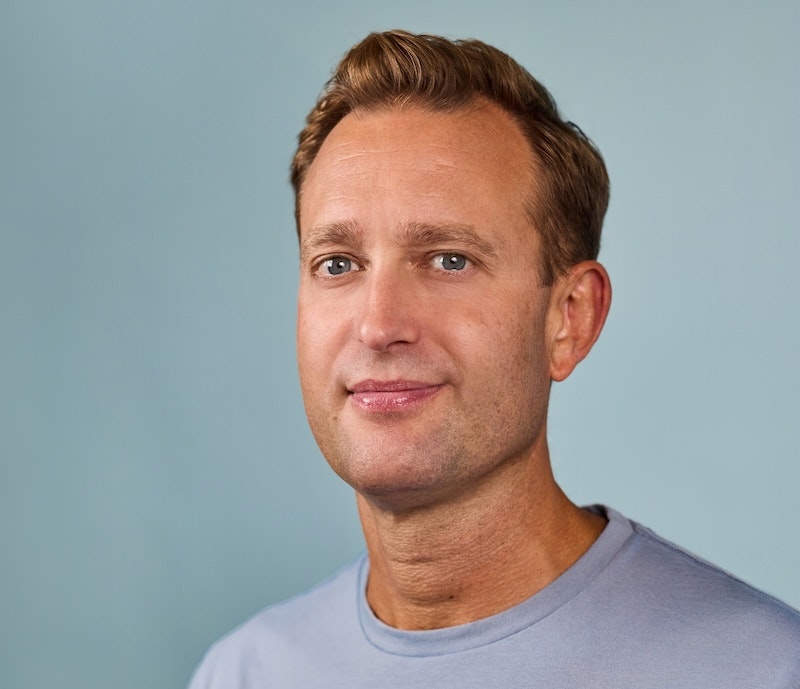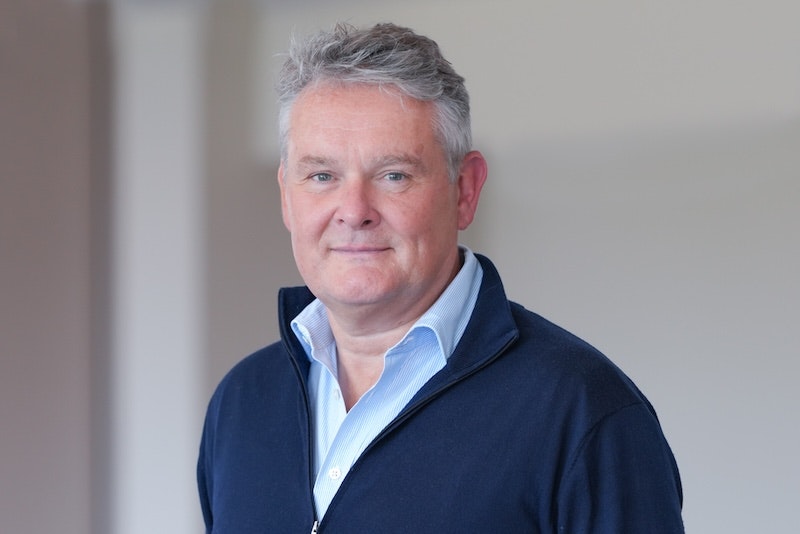The UK’s got a lot to shout about when it comes to AI.
The country’s AI startups have caught the eye of Nvidia chief Jensen Huang — who promised to back them to the tune of £2bn in September — and they beat all other European countries for representation on Sifted’s inauguralAI 100 list, published last week.
There are 38 UK AI startups on that list, which ranks the 100 rising startups harnessing the tech to reshape industries across Europe. Germany ranked second, with 25 companies, and France third, with 15. The Netherlands (6) and Spain (5) followed.
As excitement abounds, which companies do investors think are heading into the limelight?
To find out, Sifted asked Amadeus Capital Part…
The UK’s got a lot to shout about when it comes to AI.
The country’s AI startups have caught the eye of Nvidia chief Jensen Huang — who promised to back them to the tune of £2bn in September — and they beat all other European countries for representation on Sifted’s inauguralAI 100 list, published last week.
There are 38 UK AI startups on that list, which ranks the 100 rising startups harnessing the tech to reshape industries across Europe. Germany ranked second, with 25 companies, and France third, with 15. The Netherlands (6) and Spain (5) followed.
As excitement abounds, which companies do investors think are heading into the limelight?
To find out, Sifted asked Amadeus Capital Partners, Baltic Ventures, Ada Ventures, Ruya Ventures and Paladin Capital Group for the non-portfolio AI startups in the UK they’ve got their eye on.
Amelia Armour — partner at Amadeus Capital Partners

Cascade — Mildenhall
Cascade is redefining productivity by embedding AI directly into Excel workflows. Its assistant helps users automate complex tasks, generate formulas, and interpret data with conversational ease, bridging the gap between technical capability and everyday usability. As enterprise adoption of AI accelerates, Cascade’s intuitive integration positions it as a key enabler of AI-powered decision-making across industries.
Trismik — Cambridge
Trismik is tackling one of the most pressing challenges in AI: how to rigorously test and evaluate large-language models. With a science-grade framework for benchmarking LLMs, Trismik offers transparency, reproducibility and depth — critical for both researchers and enterprises deploying AI at scale. As scrutiny around model reliability grows, Trismik’s methodology could become foundational to responsible AI development.
Rick Hao — founder, managing partner at Ruya Ventures

Boltzbit — London
Boltzbit’s ambition is to “achieve” General Learning Intelligence, a new form of super learning AI.
Founded by former Google AI researcher Dr. Yichuan Zhang and former Microsoft AI researcher Dr. Jinli Hu, Boltzbit believes that efficient learning systems built on high-quality proprietary data are key to unlocking AI’s true potential.
Inspired by the founders’ research on Boltzmann machines — the Nobel Prize winning AI architecture — Boltzbit has developed the first GenAI models capable of instant learning, surpassing the limitations of traditional pre-trained transformers.
Lumai — Oxford
Spun out from the University of Oxford, Lumai is transforming the future of AI by making it faster, smarter and far more energy-efficient. Its breakthrough 3D optical computing technology uses beams of light to perform calculations at unprecedented speed and efficiency — delivering up to 50× the performance of today’s processors while using only 10% of the power.
Spaitial — London
Spaitial, founded in 2024, develops Spatial Foundation Models (SFMs), AI that understands and generates 3D environments with physics and spatial reasoning, unlike traditional 2D-focused AI.
The startup addresses markets such as gaming, AR/VR, digital twins and robotics, emphasising faster, more accessible 3D content creation. Current focus includes refining models, building scalable infrastructure and partnering with enterprises to pilot AI-native 3D applications. Its team includes experts from TU Munich, Google and Meta,
Mo Aldalou — programme director at Baltic Ventures

MyCardium AI — Liverpool
MyCardium AI develops AI-powered software for cardiac imaging, and its products include tools for echocardiography and cardiac MRI.
MyCardium uses a “human-in-the-loop” model, and rather than being fully autonomous, the AI supports clinicians to improve accuracy and throughput. The problem it’s solving is that cardiac imaging is time-intensive, variable in quality and requires specialist input. MyCardium is aiming to reduce cost, improve accuracy and speed and scale imaging workflows (including for clinical trials through AI).
SenseAI Vision — Liverpool
SenseAI develops “compressive sensing” imaging software for electron microscopes (EM) and other advanced imaging modalities. Its core claim: by using its tech you can collect vastly fewer data (i.e. a subsample) and reconstruct high-fidelity images, reducing beam damage and speeding up image acquisition up to 100× without using large training datasets.
In September 2025 it closed a seed funding round led by Foresight Group Ventures, with participation from University of Liverpool, Wren Capital, Haatch, LYVA Labs and the Liverpool City Region Seed Fund.
It already has early deployment at research institutions, which have reported using its software to reduce sample damage and improve outcomes.
Dabalox — London
Dabalox is applying conversational AI to the home-heat-pump/retrofit market. It’s aiming to act as a “heat coach” for homeowners, bridging the communication gap between homeowners and installers. It claims its platform can save around £600 per install.
The problem being solved is that the adoption of heat pumps and retrofit technologies in the UK is slow. A major barrier is homeowner uncertainty, installer-homeowner communication friction and mismatch of expectations.
North AI — Manchester
North AI has developed an AI-powered predictive insights platform for the media & entertainment industry (film, TV, streaming, distribution). Its technology predicts the commercial value of content, including old and new titles, by analysing audience data, marketability and risk/return.
The problem being solved is that decision-making on content in media/entertainment is often based on gut, historical performance or limited data. The company aims to reduce risk and improve commercial returns by giving platforms, producers and distributors better predictive tools for audience demand, positioning and monetisation.
Matt Penneycard — founding partner at Ada Ventures

Saturn — London
Saturn is developing a world model for robotics, enabling a step change in simulation and training. The team is currently in stealth, and is made up of machine learning experts and a CEO on their second company.
Metris — London
Metris is building a platform for solar asset management for solar funds and operations and maintenance installers, reducing the inefficiencies of managing and maintaining energy portfolios.
Penneycard also recommended Cascade.
Duncan Johnson — founding chief executive, Northern Gritstone

Veridox — Manchester
Veridox is developing an AI-powered image and document fraud detection platform designed to provide insurance investigators with explainable, court-ready insights. It recently raised a £1m seed round led by Outward VC and is currently testing its technology with large-scale insurance providers.
Crediflow AI — London
Crediflow is developing an AI-based corporate credit platform that allows banks, commercial lenders and private credit firms to automate the full corporate credit assessment process. The proprietary tool automates up to 90% of manual tasks, reducing the time to make lending decisions from days to minutes.
Voxelo.ai — Manchester
Voxelo is an AI-driven 3D content production platform, primarily targeting e-commerce and online brands to enable them to seamlessly generate lifelike 3D models by simply uploading images or videos of their products at up to 99% lower costs than traditional approaches.
Nazo Moosa — managing director at Paladin Capital Group
Geordie — London
As AI agents are deployed across businesses, solutions to govern their use and action chains and to secure them from threats like model hijacking and data poisoning will become critical. We’re excited by the holistic approach Geordie is taking with its AI governance platform to help organisations manage AI agent risks and observe their usage.
Stanhope AI — London
Stanhope AI is working to productise an AI system based on active inference, a theory within neuroscience which explains how brains learn and reason in real time. It’s aiming to build a system that learns on the fly and does not require pre-training, and in doing so represents a generational opportunity to invest in the future of robotics and artificial intelligence, bringing previously unseen technology to market.